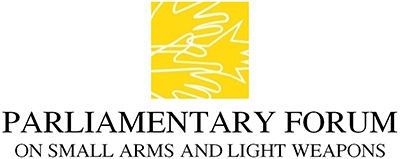1. Disarmament to save humanity
a) Nuclear Weapons
Parliamentarians can:
- Support the full ratification and entry into force of the Comprehensive Nuclear-Test-Ban Treaty;
- Ensure adequate assistance to victims and environmental remediation from nuclear tests;
- Support negotiations on a fissile materials treaty;
- Urge the nuclear armed states to reduce the operational readiness to use nuclear weapons, and to make deeper, faster and irreversible cuts to all types of nuclear weapons;
- Work with governments to eliminate the role of nuclear weapons in security doctrines;
- Promote the establishment of additional nuclear-weapon-free zones, especially one in the Middle East;
- Work with their governments and civil society to strengthen the Nuclear Non-proliferation Treaty (NPT) and ensure success of the NPT review conferences;
- Urge their governments to commence negotiations on a nuclear weapons convention or a similar package of agreements for the phased prohibition and elimination of nuclear weapons under strict and effective international control;
- Encourage governments, especially of non-nuclear States, to sign and ratify the Treaty on the Prohibition of Nuclear Weapons and adopt effective national implementation measures;
- Cooperate with civil society to build awareness about nuclear weapons risks and the need for nuclear disarmament, including through commemoration of the UN Day against Nuclear Tests, UN Day for the Total Elimination of Nuclear Weapons and other relevant days;
- Examine national budgets to facilitate these goals.
b) Chemical and Biological weapons
Parliamentarians can:
- Encourage universal ratification of the Biological Weapons Convention and Chemical Weapons Convention;
- Consider and approve comprehensive national legislation for the BWC and CWC (if not already adopted), and undertake parliamentary oversight and reviews of national implementation;
- Make use of existing model legislation and/or expertise to review the adequacy or otherwise of already enacted legislation and modify, as necessary;
- Seek regular briefings/consultations from relevant government ministries on steps being taken to implement and enforce UNSCR 1540, including advise from the ministries on how Parliamentarians can further facilitate implementation and enforcement;
- Review and contribute to their governments’ National Reports on UNSCR 1540 Implementation, and avail of the expertise offered by the UNSCR 1540 Committee in this regard.
c) Outer Space
Parliamentarians can:
- Adopt space launch regulations (in countries that host space launch facilities) to prohibit the launch of payloads that would contribute to the weaponization of outer space or the threat or use of force in outer space including attacks on satellites, or the command and control of nuclear weapons systems;
- Promote an optional protocol to the Outer Space Treaty to prohibit the placement of any weapons in space;
- Promote UN negotiations on an International Code of Conduct for Outer Space Activities;
- Support a ban on the development and testing of anti-satellite weapons.
2. Disarmament that saves lives
a) Conventional weapons and the arms trade
Parliamentarians can:
- Call on their government to submit full reports of their conventional arms holdings and arms transfers to the UN Register of Conventional Arms;
- Work for the signature and ratification by their country of the Arms Trade Treaty, if their country is not already a party to the Treaty;
- Adopt regulations to ensure that all arms transfers are consistent with the Arms Trade Treaty, and monitor the implementation of these regulations;
- Propose reductions in national weapons production and acquisition, with greater emphasis being placed on diplomacy and international law to achieve national security;
- Apply a moratorium on production, trade and supply of weapons during the COVID-19 pandemic.
b) Small arms and light weapons
Parliamentarians can:
- Review and propose amendments to current SALW related legislation.
- Call on their government to submit full reports to the UN PoA and ATT, emphasising the importance of transparency as a tool of building trust amongst countries.
- Exercise the oversight function vis-à-vis the government, focusing on the implementation of relevant conventional arms control instruments.
- Consult relevant authorities on the implementation of national SALW policies, in particular follow up with national SALW commissions, where existent.
- Actively promote and participate in awareness-raising campaigns on the issue of SALW proliferation, putting an emphasis on reaching out to constituents from areas affected by SALW proliferation.
- Support and engage in regional and international parliamentary efforts to exchange, analyse and formulate cross-regional SALW policies.
- Engage in dialogue with CSOs on possible policies to prevent and address SALW proliferation and misuse, including awareness-raising initiatives.
- Promote inclusion of parliamentarians in the international negotiations/conferences related to international SALW control instruments, in order to facilitate the bridging of knowledge and incorporation of international instruments from the international to the regional and national realm.
c) Inhumane weapons: Landmines, cluster munitions and explosive weapons in populated areas
Parliamentarians can:
- Ensure the ratification of the landmines and cluster munitions conventions by their parliament/government;
- Ensure that implementation measures for the landmines and cluster munitions conventions include prohibition of investments in the cluster munitions and landmines industries;
- Support the adoption of an international commitment (declaration or agreement) on preventing the use of explosive weapons in populated areas.
3. Disarmament for future generations: fully autonomous weapons and military uses of cyberspace
Parliamentarians can:
- Support measures to ensure that any new weapons system or method of warfare conform to international humanitarian law and other laws of warfare, as well as the principle of human responsibility for matters regarding life and death, and to prohibit the development of weapons systems and methods of warfare which cannot meet these criteria;
- Support negotiations for a treaty prohibiting fully autonomous weapons systems;
- Ensure the full application of international humanitarian law to military uses of cyberspace.
4. Strengthening partnerships
Parliamentarians can:
- Engage with key constituencies including mayors and other legislators, women, youth, religious leaders, business leaders, industry experts, academics and other civil society representatives, when undertaking disarmament events and actions;
- Advance disarmament in regional parliaments and inter-parliamentary organisations;
- Engage in UN disarmament processes as part of national delegations or parliamentary delegations;
- Support the national implementation of disarmament and non-proliferation education;
- Organise parliamentary events or motions to observe UN Days related to disarmament.
5. Disarmament, climate protection and sustainable development
Parliamentarians can:
- Ensure that disarmament issues and objectives are included in national and international forums on addressing climate change and achieving the sustainable development goals;
- Require reviews of the military carbon footprint from their defence ministries, along with plans to reduce carbon emissions;
- Consider ways to reduce defence budgets in order to liberate resources for climate protection and sustainable development;
- Develop policies or guidelines for sovereign wealth funds and other financial institutions managing public funds which would prioritise divestment from controversial weapons (nuclear, landmines, cluster munitions…) and would prioritise impact investment to support climate protection and sustainable development;
- Support economic conversion programmes to protect jobs and social cohesion when cuts are made to defence spending or military forces.
6. Pandemics and disarmament, public health and economic sustainability
Parliamentarians can:
- Support the UN Secretary-General’s initiative for a global ceasefire;
- Support budgetary allocations to COVID-19 containment and management, and to economic recovery, and to consider reducing military budgets in order to liberate resources required to address the pandemic;
- Support a moratorium on military weapons production and supply during the pandemic;
- Support measures to strengthen the Biological Weapons Convention (including at the next Biological Weapons Convention Review Conference) in order to ensure prevention of virus outbreaks from military sources, and to enable more effective cooperation in addressing future pandemics regardless of whether they originated from military or civilian sources.





